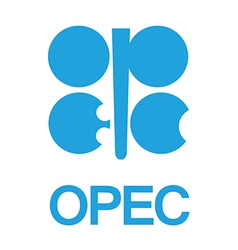GE Exits Health, Oil as CEO Shrinks Onetime Titan to Save It
 By Rick Clough
By Rick Clough
- Flannery narrows focus again in revamp of U.S. business icon
- Company says it will maintain dividend through health spinoff
This is John Flannery’s General Electric Co. — and so far, Wall Street likes it.
A year after being named chief executive officer, Flannery took the boldest steps yet to revamp the sinking corporate titan, unveiling plans to pull GE out of the health-care and oil markets. By slimming it down and reorienting around power, renewable energy and aviation, he hopes to breathe new life into the 126-year-old company.
“We’re refashioning the company at every level,” Flannery said Tuesday in an interview. “It’s fundamentally positioning the company for the future.”
The overhaul will profoundly reshape an icon of American business –- albeit one that has fallen sharply from its Jack Welch-era heyday at the turn of the century. When Flannery’s done, GE will bear little resemblance to the conglomerate that once counted NBC, home-appliances, plastic, locomotives and a sprawling finance unit among its operations.
This is John Flannery’s General Electric Co. — and so far, Wall Street likes it.
A year after being named chief executive officer, Flannery took the boldest steps yet to revamp the sinking corporate titan, unveiling plans to pull GE out of the health-care and oil markets. By slimming it down and reorienting around power, renewable energy and aviation, he hopes to breathe new life into the 126-year-old company.
“We’re refashioning the company at every level,” Flannery said Tuesday in an interview. “It’s fundamentally positioning the company for the future.”
The overhaul will profoundly reshape an icon of American business –- albeit one that has fallen sharply from its Jack Welch-era heyday at the turn of the century. When Flannery’s done, GE will bear little resemblance to the conglomerate that once counted NBC, home-appliances, plastic, locomotives and a sprawling finance unit among its operations.
The new GE won an early embrace from investors. The shares surged 8.5 percent to $13.84 at 2:12 p.m. after advancing as much as 8.9 percent for the biggest intraday gain in three years.
The announcement clears away lingering concerns over GE’s debt while laying out a plan to monetize several major assets, said Nicholas Heymann, an analyst with William Blair & Co. The moves will also help GE weather the storm in the gas-power market until it begins to improve in a few years, he said.
“It’s the escape from the Alamo,” he said. “You’re basically reconfiguring the company to bring forward the value-creation opportunities.”
Still, as the Boston-based manufacturer struggles with cash flow issues and weak demand for equipment such as gas turbines, it’s far from recovered. GE fell 27 percent this year through Monday, following a 45 percent decline last year — a slump that led to GE’s removal this week from the Dow Jones Industrial Average after more than 100 years.
Trian Applause
Trian Fund Management, which holds a stake in GE and has a seat on the board, said it welcomed the moves. “Trian supports the strategic initiatives announced today by GE and believes that these initiatives will create substantial value for shareholders,” the fund led by investor Nelson Peltz said in an emailed statement.
GE will narrow its focus to power, renewable energy and jet engines, according to a company statement. It will spin off its medical-equipment business and sell its majority stake in oilfield supplier Baker Hughes.
GE Gives Investors a Breakup. That’s a Start: Brooke Sutherland
“We have argued for the full breakup of GE and we pretty much have that – at least a realistic version of that,” Scott Davis, an analyst at Melius Research, said in a report. The health-care division is “a solid asset” and “what will remain at GE will largely be an aerospace business and a power business.”
GE plans to reduce net debt by about $25 billion by 2020. The company said it would maintain its dividend through the health spinoff. After that, GE “expects to adjust the GE dividend with a target dividend policy in line with industrial peers.”
Dividend Risk
Payouts in health care are typically lower, so the combined dividend between GE and the spinoff will probably be less than current levels, Flannery said. Investors have been bracing for a possible cut as GE’s condition has deteriorated. The CEO already reduced the payout in November, a painful blow to the many investors who have come to rely on the steady income.
“The dividend will likely be cut materially,” Steve Tusa, an analyst at JPMorgan Chase & Co., said in a note to clients. “This is also ultimately a de facto equity raise and dividend cut when all is said and done.”
But the dividend announcement may be a relief to some investors. The payout won’t disappear completely, and a potential cut will only happen in line with the move to spin off the health unit, Heymann said.
S&P Global Ratings put GE’s A rating on a negative credit watch, saying it expects to downgrade it one notch to four levels above junk when the health spinoff is completed. Moody’s Investors Service reaffirmed its comparable A2 rating and said the moves were a positive step for GE’s credit.
Board Switch
GE said Larry Culp would take over as lead director. Culp, a former Danaher Corp. CEO, joined the board earlier this year.
Flannery’s latest moves cap a strategic review he has been pursuing since taking the helm last year from Jeffrey Immelt, while effectively marking his second attempt to present a turnaround to investors. In November, Flannery unveiled changes including asset sales and a board overhaul, while saying the GE of the future would revolve around the energy, aviation and health-care markets.
More Power, Less Capital
GE Capital’s contribution to total revenue has disappeared in the last decade
That generated criticism from investors who called the steps insufficient, and the shares continued to fall. Early this year, after GE detailed worse-than-expected problems with insurance liabilities, Flannery promised to explore bigger changes, including a possible breakup.
Following Siemens
Since then, Flannery has agreed to unload GE’s century-old locomotive operations. On Monday, he announced the sale of an industrial-engine business to buyout firm Advent International. Immelt sold most of GE’s banking and consumer operations.
Under the plan unveiled Tuesday, GE will sell 20 percent of the health business and spin off the rest to its shareholders tax-free. The health business makes imaging machines and other hospital equipment.
The exit from health care mirrors a similar move by Siemens AG, the German industrial giant that’s dramatically simplified its conglomerate structure in recent years.
The Munich-based manufacturer, which competes with GE in areas such as power-generation and medical scanners, sold shares in its Healthineers subsidiary in March, marking the country’s second-biggest initial public offering in almost two decades.
Shrinking Finance
The U.S. and European manufacturing titans have historically tracked each other’s business closely, with close competition in power turbines, household appliances, medical devices and light bulbs. Siemens today is a far leaner business than it was a decade ago, having cut ties with some historic assets such as its communications business and the Osram light-bulb business.
GE plans to “materially shrink” the balance sheet of its finance arm, GE Capital, targeting the sale of $25 billion in energy and industrial finance assets by 2020. The company also is exploring options to reduce its insurance exposure. GE shocked investors this year with a $15 billion shortfall in insurance reserves. It also disclosed an accounting investigation by the U.S. Securities and Exchange Commission.
The exit from the Baker Hughes stake — to occur over the next two to three years — will end GE’s brief, rocky tenure in the oil and gas market.
GE began an aggressive expansion of its crude operations in 2007 with the $1.9 billion acquisition of equipment-maker Vetco Gray, building on a small set of assets. Over the next seven years, GE shelled out more than $10 billion on additional deals, buying companies such as Wellstream and Dresser.
Just as GE Oil & Gas was becoming one of the company’s most prominent businesses, the market collapsed. The price of crude plummeted more than 60 percent over 2014 and 2015. With demand down sharply, the division has weighed on GE’s financial results.
What’s more, GE’s oilfield offerings were still limited compared to its rivals, constraining growth in the event of a recovery. Under Immelt, GE agreed in 2016 to join forces with Baker Hughes, creating a more-formidable player with a robust product lineup that would be better able to compete with industry leader Schlumberger Ltd.
That didn’t last long. Flannery said shortly after taking over last year that GE would explore options to get out of its 62.5 percent stake, without committing to a formal exit plan.










